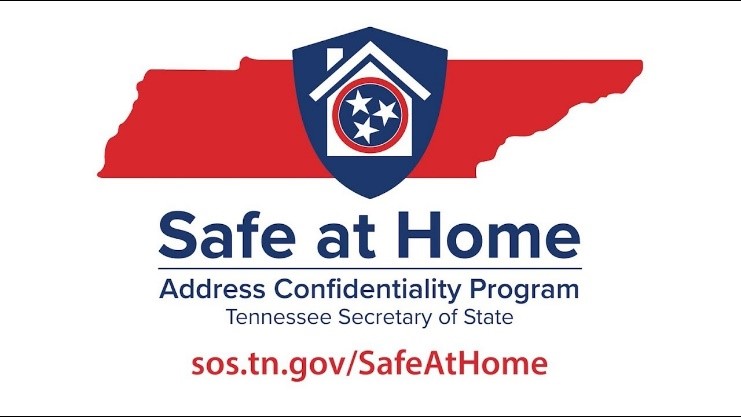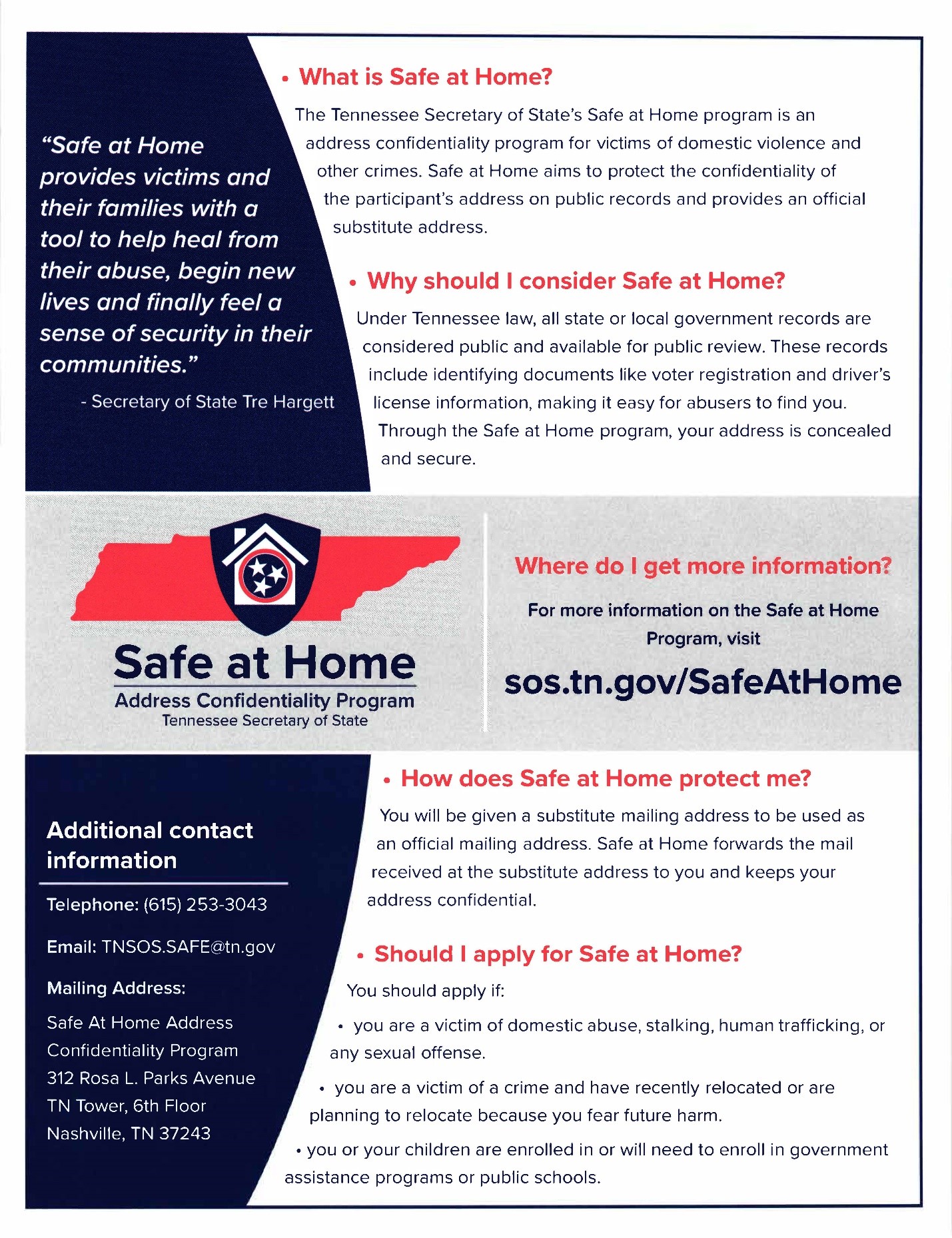Address confidentiality program protects domestic violence survivors
By Diana Fedinec
 Domestic violence and family abuse cases have risen across the nation and in many
parts of the world due to the COVID-19 pandemic. Southwest is committed to ensuring
the safety and health of its students and employees and the communities we serve by
offering support services and resources.
Domestic violence and family abuse cases have risen across the nation and in many
parts of the world due to the COVID-19 pandemic. Southwest is committed to ensuring
the safety and health of its students and employees and the communities we serve by
offering support services and resources.
On behalf of the Secretary of State Tre Hargett, the college is providing information about Tennessee’s Safe at Home Address Confidentiality Program. The program was enacted by the Tennessee General Assembly in 2018 and is open to all victims of domestic abuse, stalking, human trafficking, rape, sexual battery, or any other sexual offense at no cost.
Safe at Home protects the confidentiality of a participant’s address through a ‘substitute’ address as their official mailing address. The address can be used for all state and local government purposes and for their children, including public school or public benefits enrollment (with few exceptions). By doing so, the participant’s confidential address will not appear in public records relating to either themselves or their children. Under current Tennessee Public Records Act, most state and local records are public and available for anyone’s inspection.
Below is a quick reference guide on the Safe at Home program. For more detailed information, visit the Tennessee Secretary of State’s Safe at Home Address Confidentiality Program website. Contact Southwest’s Office of Human Resources at humanresources@southwest.tn.edu for more information.
If you are experiencing circumstances affecting your physical, mental and emotional well-being and need counseling or help with resources, please contact Southwest’s Mental Health Counselor, Kimberly Weddington, at kweddington@southwest.tn.edu.

In This Issue...
- FROM THE PRESIDENT
- Southwest wins prestigious national Bellwether Award
- Chef Leake dishes out favorite eats on News Channel 3
- EDGE, TSBDC partner to help small businesses obtain economic development loans
- FACULTY KUDOS: Dean Young appointed to Education Trust policy council
- FAFSA filing deadlines extended; Early filers win $250 book scholarships
- Medical District gets new app-based shuttle service
- Telehealth, food boxes available to students in need
- Welcome Aboard: Sherita Robertson, Director of Financial Aid
- POLICY MATTERS: About conflicts of interest and commitment
- Renowned author Clifton Taulbert returns, sheds light on Black Wall Street at Men in Black Awards
- Courageous Conversations series features Richard Milner
- President Tracy D. Hall elected to SACSCOC Board of Trustees
- Saluqis open 2021 Season
- Final Let’s Talk About Race workshop slated for March 16
- Greene to serve as Interim Vice President for Finance and Administration
- STAFF KUDOS: Taylor presents at Dream 2021
- Students can develop leadership skills with Learning to Lead
- The Taste is still cooking with curbside take-out
- STAFF KUDOS: Southwest apprenticeship coordinator makes Forbes first Next 1000 list
- Fisher tackles corporate sustainability and the pandemic in latest book
- STUDENT KUDOS: Southwest thespian makes TV commercial debut
- New Year, New You!
- Address confidentiality program protects domestic violence survivors
- Southwest inducts 68 students into inaugural leadership class
- Let’s celebrate the Bellwether Award!
- Southwest: In the News